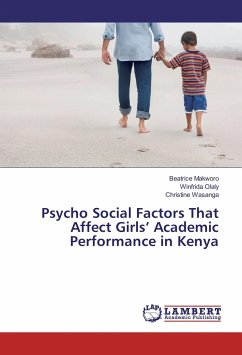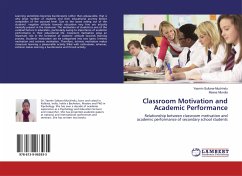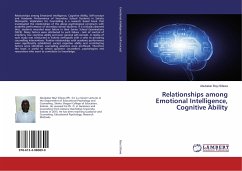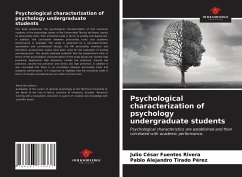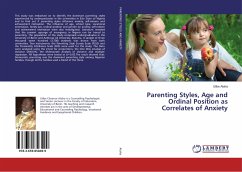
Personality Supertraits as Correlates of Academic Performance
Versandkostenfrei!
Versandfertig in 6-10 Tagen
37,99 €
inkl. MwSt.

PAYBACK Punkte
19 °P sammeln!
Nigeria has a strong belief in education as a means of development and prosperity. Hence huge resources are annually put into educational expansion as an investment intended to help reap corresponding return. In this type of investment, students are the prime input; their attitudes affect its process and in the end they are its prime outputs. The quality of students any educational system produces is in the overall assessment of the achievement of the system. The dimension of investment in education vis-a-vis the results obtainable from the investment makes the issue of learning outcomes relev...
Nigeria has a strong belief in education as a means of development and prosperity. Hence huge resources are annually put into educational expansion as an investment intended to help reap corresponding return. In this type of investment, students are the prime input; their attitudes affect its process and in the end they are its prime outputs. The quality of students any educational system produces is in the overall assessment of the achievement of the system. The dimension of investment in education vis-a-vis the results obtainable from the investment makes the issue of learning outcomes relevant to every practitioner in education, hence teachers and students play an important part in the investment in education. Also, teachers and other practitioners have the responsibility of ensuring effective understanding and control of the factors that influence teaching and learning outcomes (Udofot, 2003).



